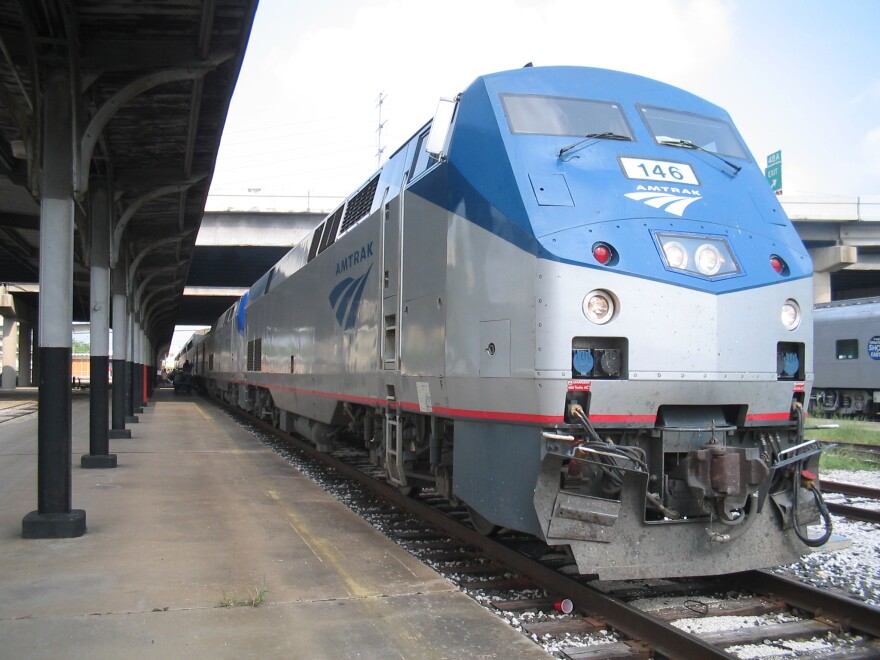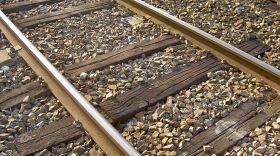A fatal train derailment Sunday in Pennsylvania once again has put the spotlight on rail safety, with at least one area lawmaker calling for technological improvements.
An Amtrak train heading from New York City to Savannah, Georgia derailed Sunday outside Philadelphia. Federal officials say two Amtrak workers were killed and more than 30 passengers injured when the train hit a backhoe that was on the tracks and derailed the lead engine. The National Transportation Safety Board is investigating.
The Hudson Valley and surrounding areas have seen their own fatal train accidents in recent years –— namely on Metro-North — prompting area lawmakers to pursue legislation to make the trains and the rails they ride on, safer. Democratic Congressman Sean Patrick Maloney, a member of the House Transportation and Infrastructure Committee, wrote several measures to improve rail safety, which were included in the Fixing America’s Surface Transportation Act, also known as the Highway Transportation bill, and signed into law. He says staying on top of rail safety is key.
“We just need to stay on this issue until we don’t have so many train accidents,” says Maloney.
He says Sunday’s derailment underscores the need for better technology.
“I think the key that links this accident to the others is that technology can improve the way we do this stuff. And if we had automatic control of the trains and could stop them through what’s called positive train control, that’s how we prevent derailments when the train’s going too fast,” Maloney says. “In this case, you could theoretically stop a train if you also had that system linked to a GPS tracker of other equipment that’s working on the rails and so you could stop a train before an accident like this occurs should there not be time for the human operator to do so. There’s going to be an investigation and we need to learn more, but I do believe there are very significant ways that technology can make our trains safer. That’s what I’ve been working for.”
Maloney has been vocal about rail safety and investing in Positive Train Control, or PTC, a Wi-Fi and GPS technology that can stop or slow trains remotely. In December, Maloney’s Passenger Train Derailment Prevention Act of 2015 was signed into law. It requires passenger railroads and freight lines on which passenger trains travel to identify high-hazard curves, like those involved in the fatal 2013 Metro-North derailment at Spuyten Duyvil in the Bronx and in Philadelphia last year, and take actions to enhance safety.
Plus, February marked the one-year anniversary of what has been called the deadliest crash in Metro-North Railroad history, when a commuter train crashed into an SUV that was stopped on the tracks at the Commerce Street crossing in Valhalla, killing five people on the train and the car's driver.
Meanwhile, following the April 3 Amtrak derailment, U.S. Senator Richard Blumenthal, a Connecticut Democrat, also vocal in rail safety issues, is urging a “sweeping and swift” investigation into the crash. An Amtrak spokesperson did not answer requests for comment in time for this broadcast.
When accidents are preventable and/or happen suddenly and without warning, such as in a fatal train crash, the trauma from such an event differs from that concerning tragedies in a natural disaster, for example. That’s according to Dr. James Halpern, director of The Institute for Disaster Mental Health at the State University of New York at New Paltz.
“You are in a situation where it certainly comes without warning,” says Halpern “Injuries and deaths can occur violently.”
Given the number of fatal train crashes in the past few years, Halpern says people in the communities where the crashes occur may have a sense of loss of control.
“So as careful as we might be as to how we live our lives and try to protect our families and, of course, we do have some significant control around that, these kinds of events remind us that we don’t have complete control and that these events can happen to us and people around us,” Halpern says.
Sunday’s derailment follows an Amtrak derailment in March in Kansas that sent more than 30 people to the hospital.





